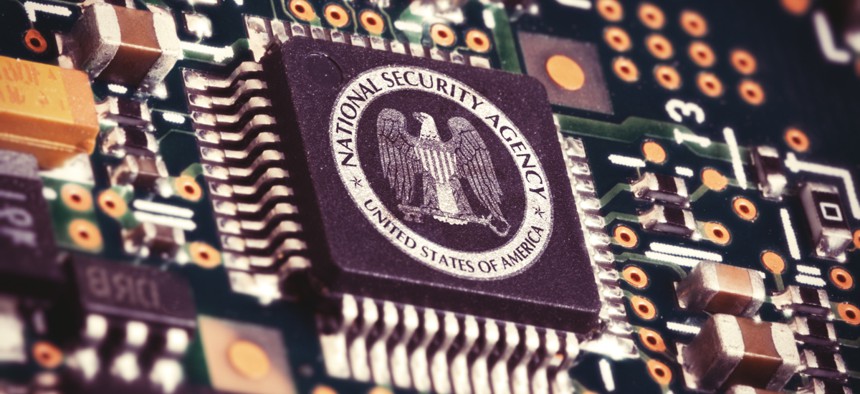Fresh Snowden Reports Have One Lawmaker Questioning if Congress Was Surveilled

Carsten Reisinger/Shutterstock
It follows the release of new allegations related to Edward Snowden.
In a letter penned to the Director of National Intelligence and the head of the National Security Agency Friday, Rep. Anna Eshoo, D-Calif., demands details about every time intelligence community personnel collected communications or metadata on any Congress member, federal judge, Supreme Court Justice, or other judicial or legislative branch employee during the last decade.
The note was sparked by recent allegations that former government contractor-turned-whistleblower Edward Snowden sifted through classified surveillance databases for congressional communications. Snowden leaked classified documents about government surveillance in 2013, was charged with violating the Espionage Act and escaped to Russia where he remains. The reports surfaced in a book released in May by Barton Gellman, a journalist who received leaked classified material from Snowden.
“The book includes a previously unpublished revelation: Mr. Snowden used XKEYSCORE, an NSA surveillance tool, to search for communications associated with a publicly listed, official email address of a Member of the House of Representatives. The book states that the email address was ‘Something in the @mail.house.gov domain,’” Eshoo wrote. “The very fact Mr. Snowden was even able to use an IC tool to search for emails of a member of Congress is deeply concerning.”
Snowden said he wiretapped the internet communications belonging to Congress’ current Gang of Eight (a group of each chamber’s top leaders) and the Supreme Court—though the claim proved to be false, the book reveals and Eshoo notes, because he couldn’t find the government officials’ personal email addresses. Eshoo said it’s “frightening” that the only thing preventing the wiretapping of lawmakers was the contractor’s inability to quickly uncover their personal digital contacts, and she also highlighted previous allegations of the Central Intelligence Agency collecting files on Congress members in the 1970s.
On top of calling for details into the scope of information collected by the intelligence community on Congressional insiders, Eshoo also asked whether technical safeguards exist that would keep IC personnel “from querying databases, without express legal authorization or as part of a court-approved investigation” for data about legislative or judicial branch members—and posed several other questions.
She asks the directors to respond by Sept. 28.
“The surveillance of Congressional and judicial communications by the executive branch seriously threatens the separation of powers principles of our Constitution,” Eshoo wrote.
NEXT STORY: Quick Hits






